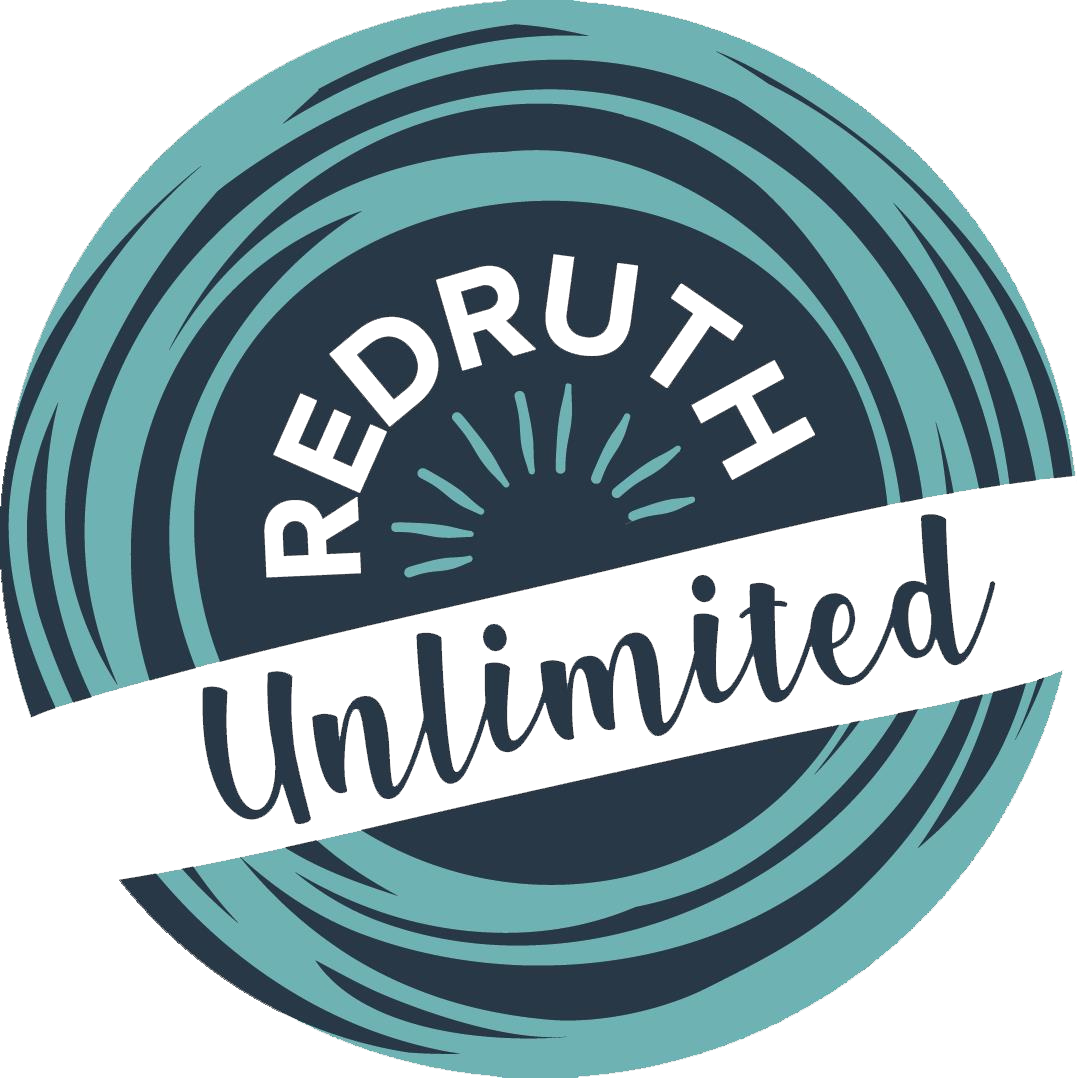MESKLA | Brewyon Drudh
MESKLA | Brewyon Drudh (Mussel Gathering | Precious Fragments) is a multi-platform research art work that uses sculpture and conversation to explore contemporary Cornish cultural identity & its relationship with heritage, land, and extraction industries, including tourism and mining. Views on and experiences of contemporary Cornish cultural identity are sought, through sculpture workshops, podcasts, symposia, public talks, and exhibition.
![MESKLA workshops 2024/25]()
![Gwyrdh Glas | Liwyow a Gernow installation, Flamm, October 2023. Photo credit: Nick Cooney]()
![Copper pocket sculptures, given out to participants in 2022]()
![MESKLA exhibition, Krowji, December 2022. Photo credit: Nick Cooney]()
![MESKLA at Tate St Ives, May 2023. Photo credits: Steve Tanner]()
![MESKLA at Tate St Ives, May 2023. Photo credits: Steve Tanner]()
![MESKLA rubbish sculpture installation, Krowji, December 2022. Photo credit: Nick Cooney]()
The MESKLA conversation considers issues of authenticity, fractured culture, colonialism, the links between identity, land and labour, indigeneity, language and intangible cultural heritage. With conversations expanding to connect to broader contexts - historically, nationally and globally.
The Rubbish Sculpture & Conversation workshops that are central to MESKLA also provide a methodology for the project and its research. Sculpture takes up space, and within MESKLA it becomes a physical place holder for Cornish identity and culture. The workshop conversations encourage open dialogue and listening, creating space for participants to be able to articulate their views, and consider different perspectives and experiences.
Through talking whilst making, participants are given an opportunity to access different modes of thinking, the variety and nature of the found and reclaimed materials used in the sculpture workshops inspires and challenges, much as the eclectic nature of each of our personal histories does. It is essential that participants are able to play freely without judgement, and the pace of the conversations is unhurried, to allow time to unpick areas that anyone might find uncomfortable. All making is powerful, having permission and opportunity to be creative with no direct instruction reinforces that all voices, views and experiences are important.
![Welcome Words, with FEAST & Carn to Cove, 2023]()
![MESKLA Symposium, October 2022. Photo credit: Sovay Berriman]()
![MESKLA rubbish sculpture & conversation workshop at Krowji, Redruth. Photo credit: Danny Wood]()
An exhibition brought together all the sculptures made during Rubbish Sculpture & Conversation workshops. The contributed sculptures were presented within an installation, made with reclaimed copper and other waste material, by Sovay Berriman. A closing event with artist Steven Paige took place on Saturday 10th December. Steven and Sovay held an in-conversation discussion which explored the concepts and methodology behind MESKLA | Brewyon Drudh, working in expanded practices, making sculpture and plans for MESKLA’s future.
MESKLA was included in The Redruth Story Book published by The Writers’ Block. You can read the text by Sovay here.
MESKLA presented conversations, exhibition and workshops with The Writers’ Block, Tate St Ives and at Murdoch Day and the Internation Pasty & Mining Festival, both in Redruth.
MESKLA Lead Artist Sovay Berriman brought Liwyow a Gernow (Colours of Cornwall), a MESKLA mini-project, to her workshops for Hospital Rooms Cornwall Project , and the inaugeral Flamm Cornwall programme with a participatory sculptural installation and film entitled Gwyrdh Glas. MESKLA also continued the relationship with Lowender festival with a screening of Gwyrdh Glas and Liwyow a Gernow workshops.
![Gwyrdh Glas | Liwyow a Gernow installation, Flamm, October 2023. Photo credit: Nick Cooney]()
Sovay wrote a piece about MESKLA and Kernewek identity for VASW (Visual Art South West) - Thinking & Practise on the 10 year Anniversary of the Recognition of the Cornish as a National Minority.
Sovay says,
“Celebrating Cornish Minority Status and Cultural identity is empowering and joyful, it is also a way to name responsibility. A request to England and the wider UK to hear, recognise and respect our story in the way that we tell it. And to Kernow, to own its relationship with the world not only as a colonised culture, acknowledging that our heritage of invention and influence supported exploitation and violence. It is essential that Kernow is outward facing, looking to make reparation and reconnection beyond our coastline, as peers with shared and vastly different experiences. By doing so we model another way to lead, be, create and care.”
Spring 2024 also saw the translated Kernewek/Sowsnek (Cornish/English) 3,807wd text commission from ButCH/* about the first year of MESKLA published - Kuntel Brewyon Drudh (Gathering Precious Fragments).
"Having the entire text translated into Cornish has pushed the Translation Service to the limit – but it was done. The ‘new’ words in Cornish were passed through the Terminology Group and duly entered into the on-line dictionary. So what? Well, Kernewek grows, more artists and more of the Cornish public get to meet their indigenous language and even Google Translate gets better. Meur ras dhe Sovay."
Pol Hodge, translator
A training programme was made possible through FEAST funding for a new cohort of workshop leaders. Reuben Evans, Anna Gillet, Nicky Harwood, Lottie Hinton, and Delpha Hudson undertook Jess Malley’s Introduction to Anti-Racism programme, and training with Sovay Berriman and Liz Howell in the MESKLA methodology and approch to holding meandering and generative converation through sculpture-making.
A new series of workshops across Cornwall with new partners - Geevor Mine, The Museum of Cornish Life, Cornwall Museum, Maker Heights, Salt Studios and Into Bodmin.
A small publication of the Liwyow a Gernow colour swatches and CMYK/RGB numbers is underway. This will also include prompts, provocations and guidance for holding your own rubbish sculpture conversations about Kernewek identity, the impact and meaning of the Cornish diaspora, the significance of links between the Celtic nations and indigenous languages networks, and the relationships with and to land through both ownership, kinship, labour and sympathy.
Using the marker of the 10yr anniversary of National Minority Status to question how we move forward. Facilitating and caring for a modern, open, embracing culture, that makes space for those who feel the import of ancestry, and those who choose Kernow/Cornwall as their home and identifying culture.
.
![MESKLA pamphlet, 2022]()
![Liwyow a Gernow (colours of Cornwall) swatches, 2023]()
![Liwyow a Gernow workshop with Hospital Rooms, 2023]()
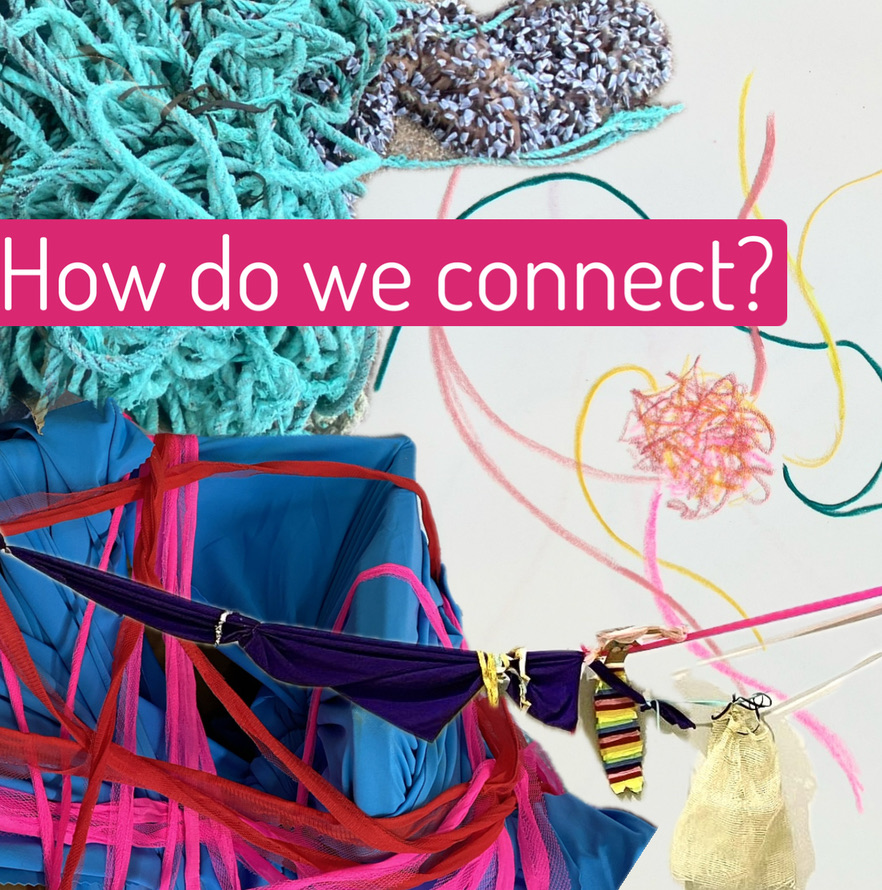

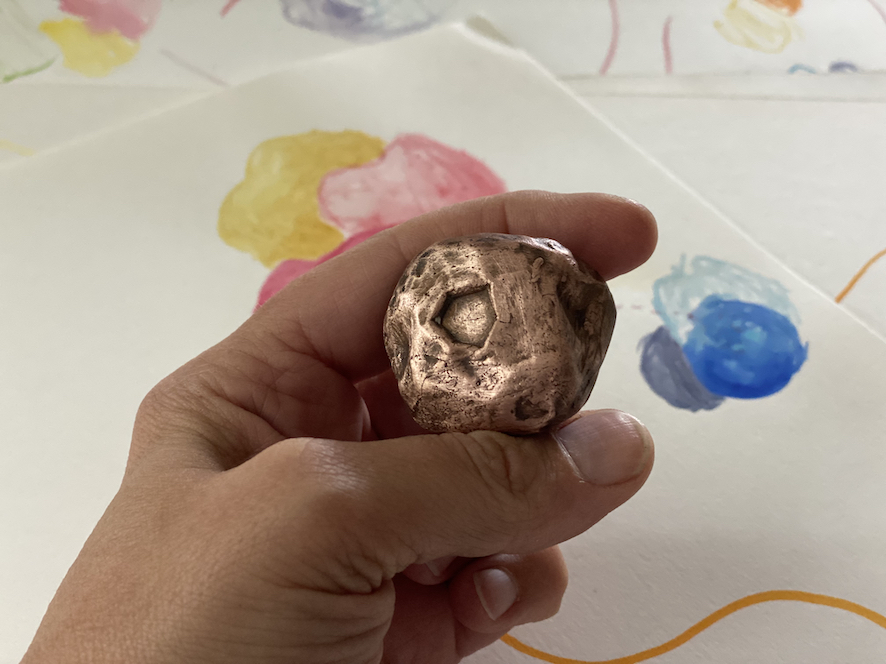
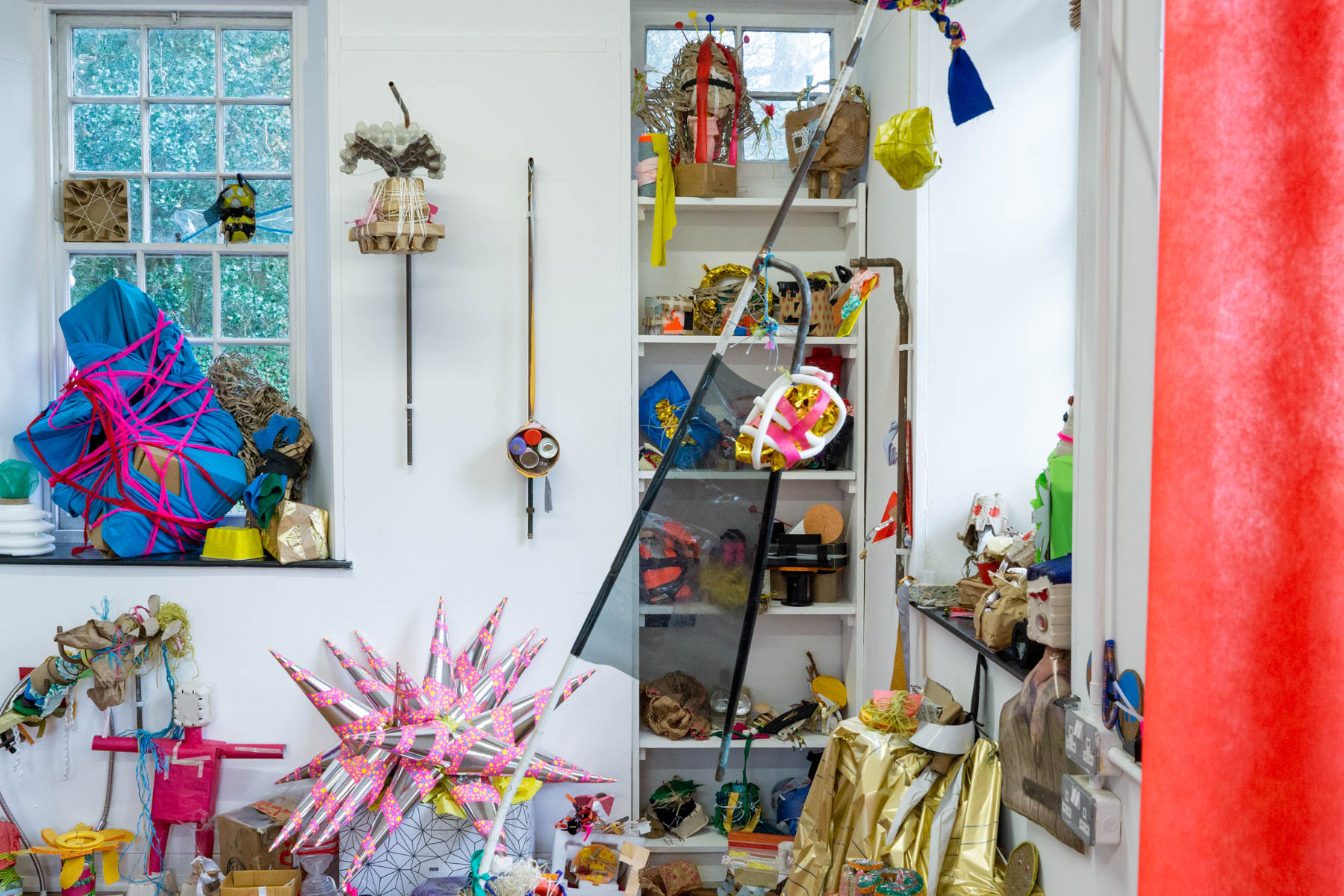
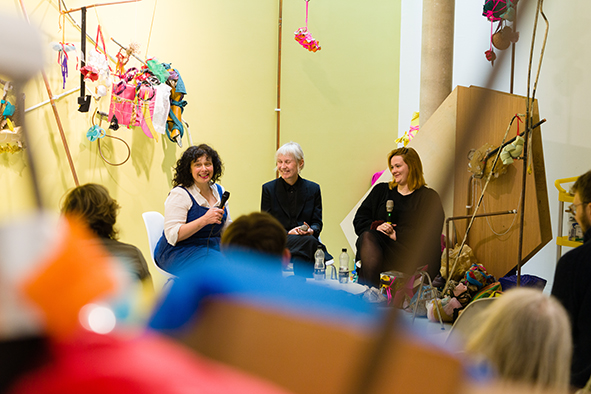
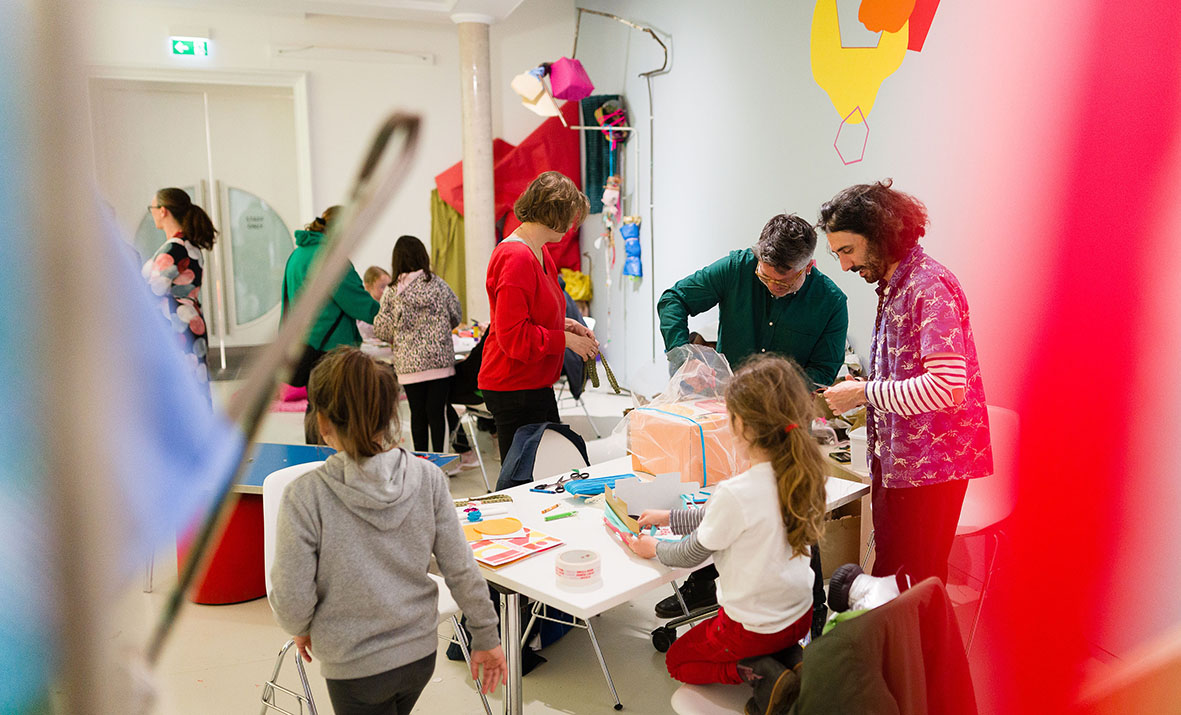
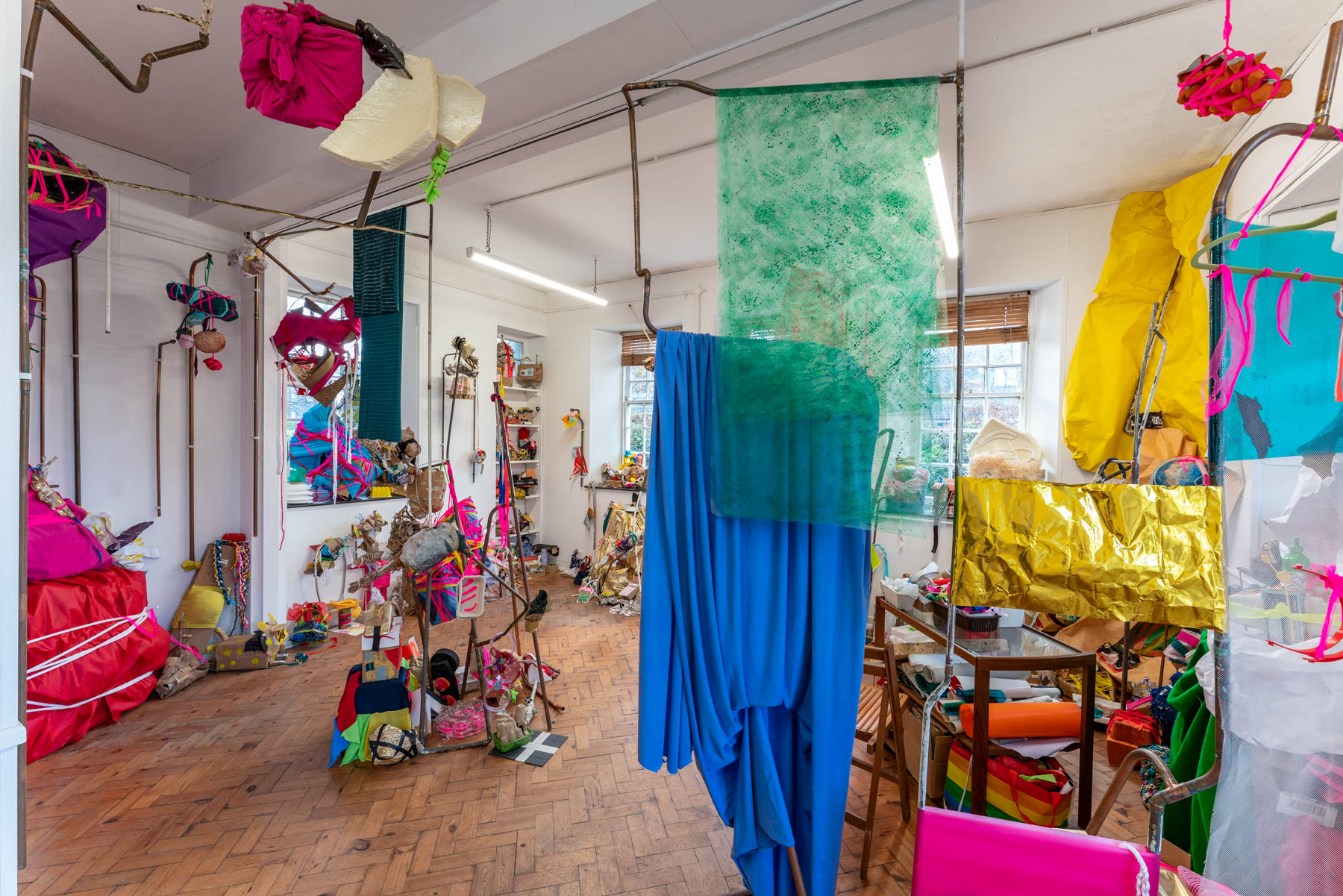
The MESKLA conversation considers issues of authenticity, fractured culture, colonialism, the links between identity, land and labour, indigeneity, language and intangible cultural heritage. With conversations expanding to connect to broader contexts - historically, nationally and globally.
The Rubbish Sculpture & Conversation workshops that are central to MESKLA also provide a methodology for the project and its research. Sculpture takes up space, and within MESKLA it becomes a physical place holder for Cornish identity and culture. The workshop conversations encourage open dialogue and listening, creating space for participants to be able to articulate their views, and consider different perspectives and experiences.
Through talking whilst making, participants are given an opportunity to access different modes of thinking, the variety and nature of the found and reclaimed materials used in the sculpture workshops inspires and challenges, much as the eclectic nature of each of our personal histories does. It is essential that participants are able to play freely without judgement, and the pace of the conversations is unhurried, to allow time to unpick areas that anyone might find uncomfortable. All making is powerful, having permission and opportunity to be creative with no direct instruction reinforces that all voices, views and experiences are important.

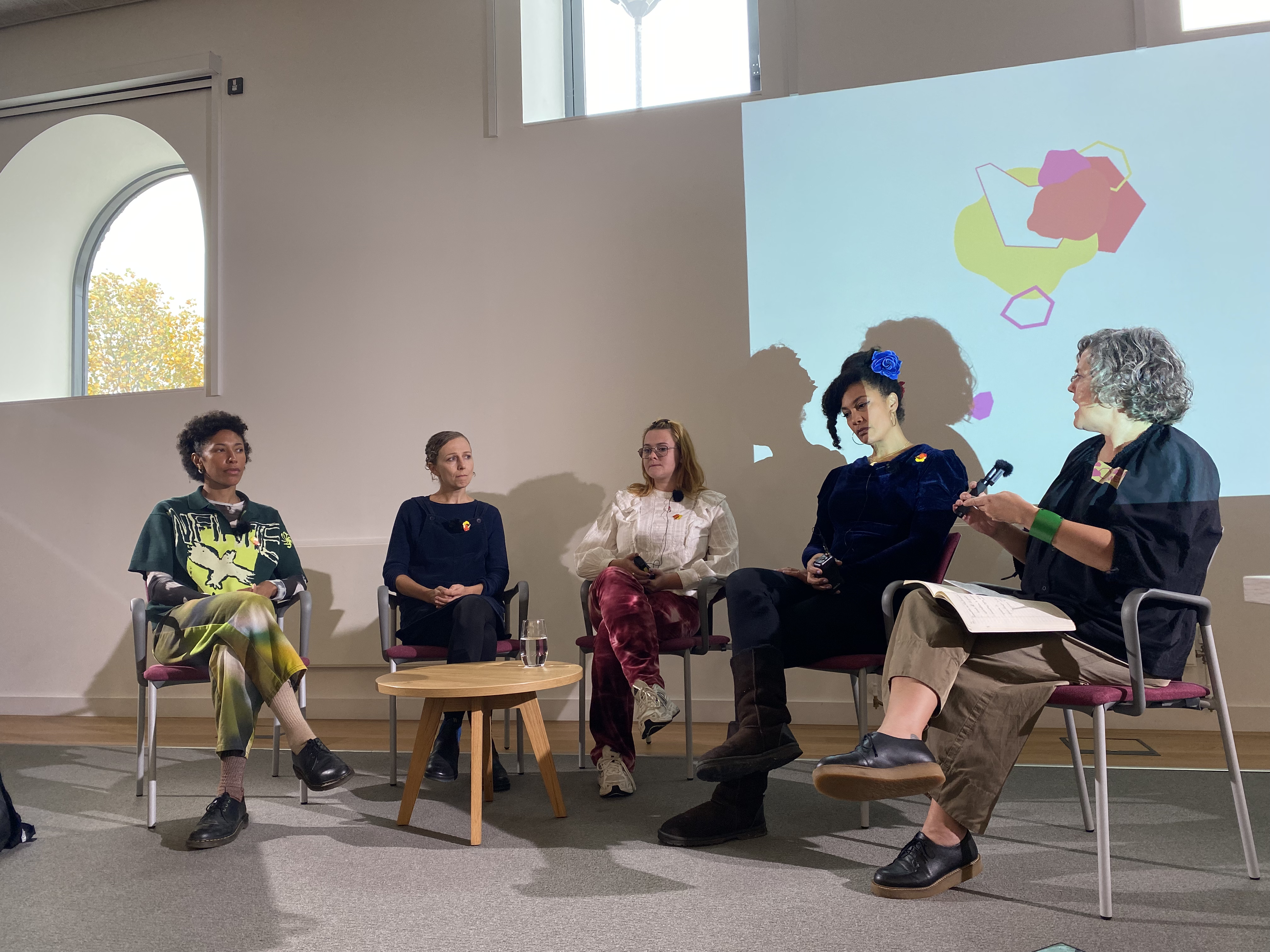

MESKLA Timeline
2022
MESKLA discussions were woven into a series of podcasts, workshops, a symposium and a sculptural installation exhibited in Redruth.An exhibition brought together all the sculptures made during Rubbish Sculpture & Conversation workshops. The contributed sculptures were presented within an installation, made with reclaimed copper and other waste material, by Sovay Berriman. A closing event with artist Steven Paige took place on Saturday 10th December. Steven and Sovay held an in-conversation discussion which explored the concepts and methodology behind MESKLA | Brewyon Drudh, working in expanded practices, making sculpture and plans for MESKLA’s future.
A limited edition of small palm-sized pocket sculptures were cast from reclaimed copper and given, on a first come first served basis, to those who contributed to the sculptural workshops, creating a physical legacy, and reminder of the shared conversations.
Independent queer arts & heritage consultancy ButCH/* formatively evaluated the first stage of the project.
A pamphlet was produced with texts by Emma Underhill and BuTCH/*, and a drawing by Sovay that responded to the connections and communications that are so essential to the MESKLA methodology. This pamphlet can be viewed here.
Independent queer arts & heritage consultancy ButCH/* formatively evaluated the first stage of the project.
A pamphlet was produced with texts by Emma Underhill and BuTCH/*, and a drawing by Sovay that responded to the connections and communications that are so essential to the MESKLA methodology. This pamphlet can be viewed here.
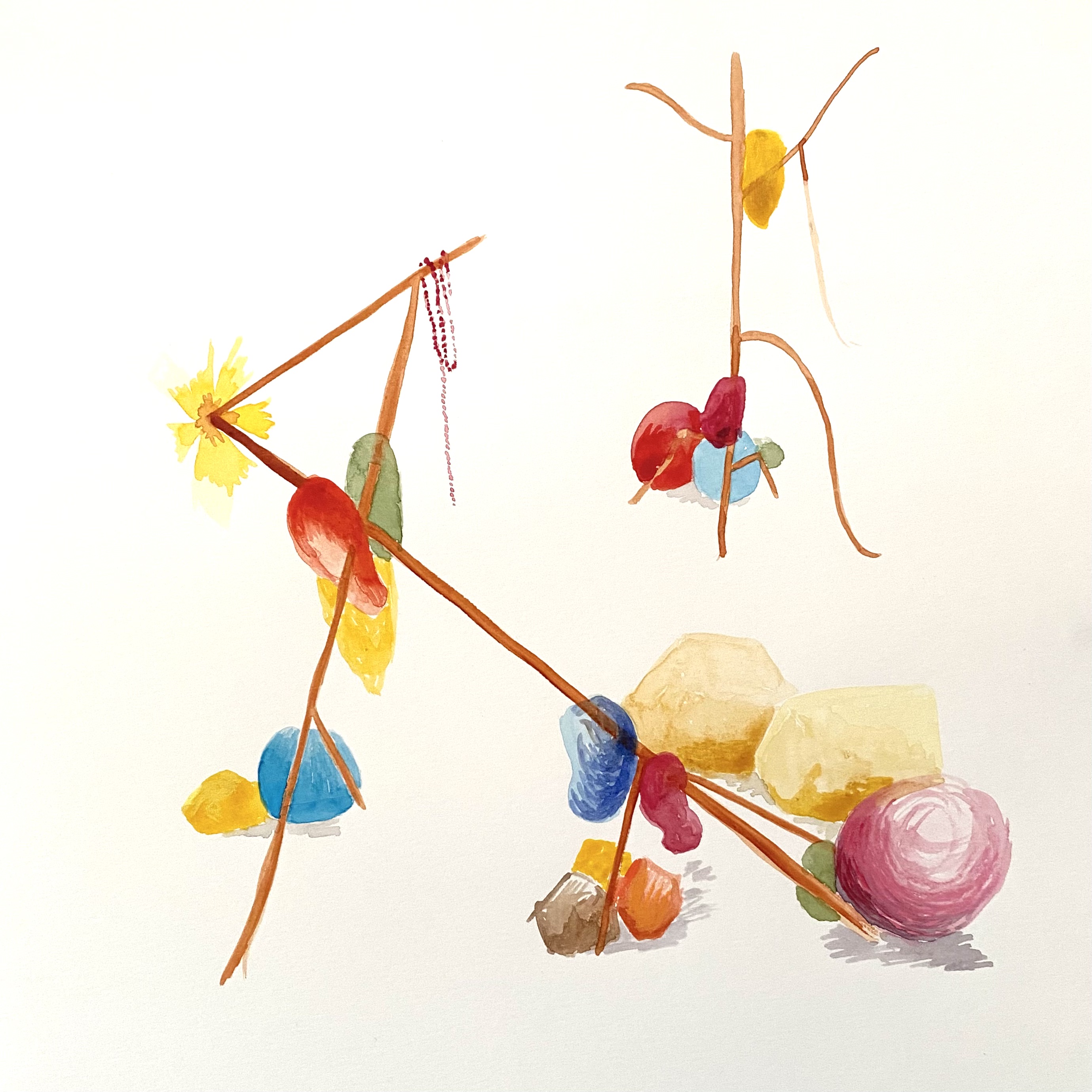
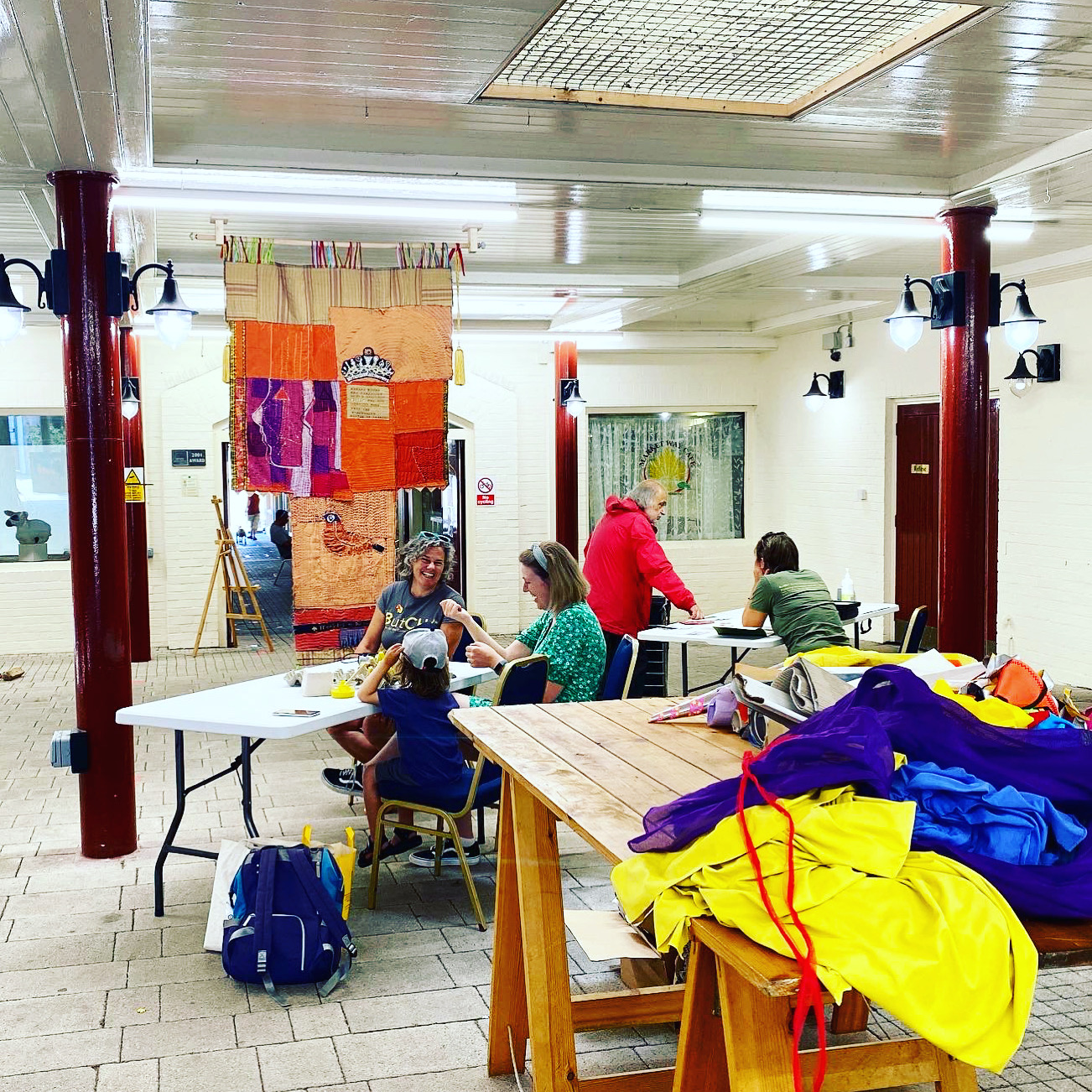

2023
MESKLA partnered with FEAST and Carn to Cove to produce Welcome Words: When do welcome words become dangerous discourse? a sharing day for those artists, arts-workers and venues to share and support each other in corageous inclusive and diverse making and producing for Cornwall. Lara Ratnaraja invited as consultant and host for the event.MESKLA was included in The Redruth Story Book published by The Writers’ Block. You can read the text by Sovay here.
MESKLA presented conversations, exhibition and workshops with The Writers’ Block, Tate St Ives and at Murdoch Day and the Internation Pasty & Mining Festival, both in Redruth.
MESKLA Lead Artist Sovay Berriman brought Liwyow a Gernow (Colours of Cornwall), a MESKLA mini-project, to her workshops for Hospital Rooms Cornwall Project , and the inaugeral Flamm Cornwall programme with a participatory sculptural installation and film entitled Gwyrdh Glas. MESKLA also continued the relationship with Lowender festival with a screening of Gwyrdh Glas and Liwyow a Gernow workshops.
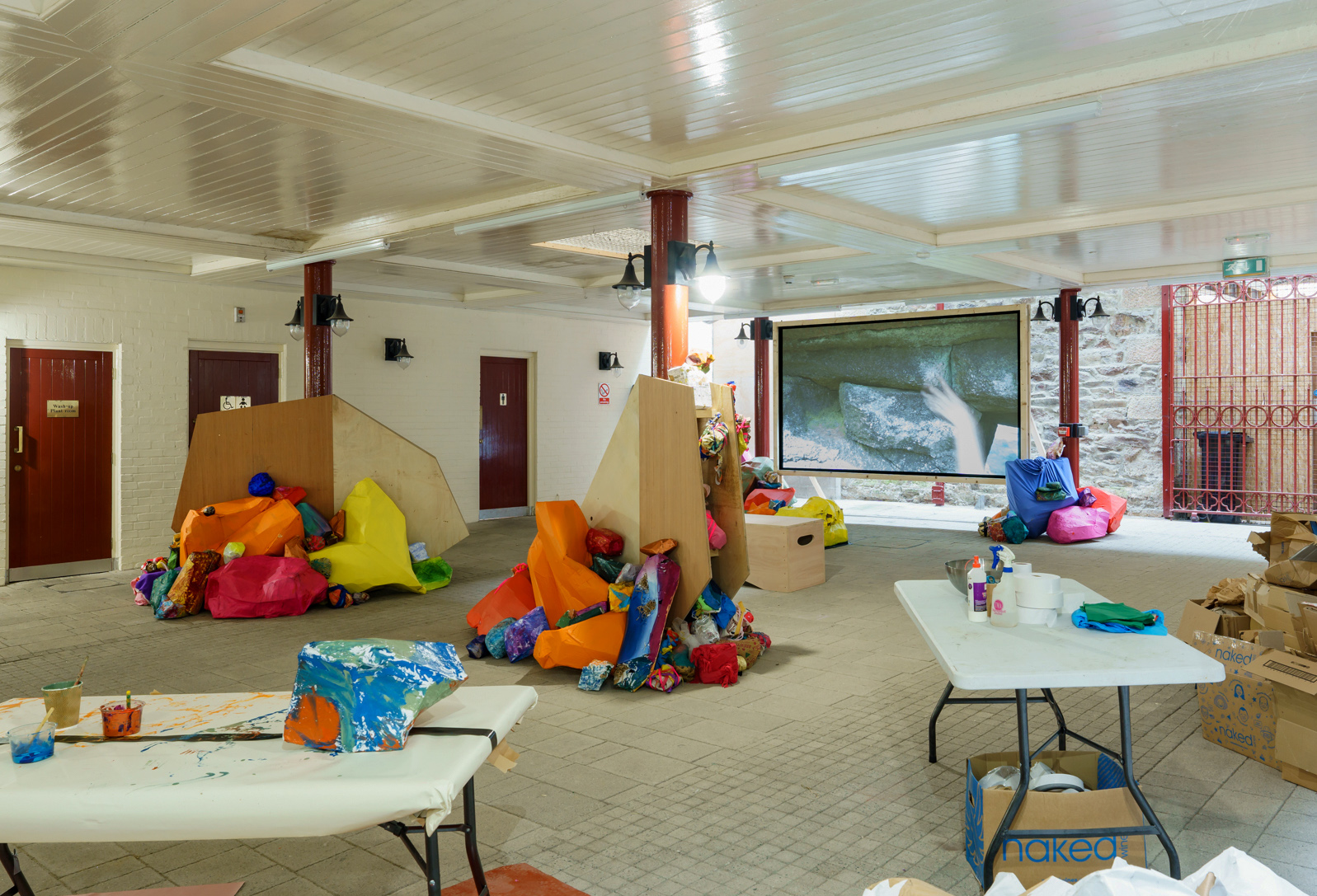
2024
The 10 year anniversary year of Kernewek/Cornish National Minority status being recognised by British government.Sovay wrote a piece about MESKLA and Kernewek identity for VASW (Visual Art South West) - Thinking & Practise on the 10 year Anniversary of the Recognition of the Cornish as a National Minority.
Sovay says,
“Celebrating Cornish Minority Status and Cultural identity is empowering and joyful, it is also a way to name responsibility. A request to England and the wider UK to hear, recognise and respect our story in the way that we tell it. And to Kernow, to own its relationship with the world not only as a colonised culture, acknowledging that our heritage of invention and influence supported exploitation and violence. It is essential that Kernow is outward facing, looking to make reparation and reconnection beyond our coastline, as peers with shared and vastly different experiences. By doing so we model another way to lead, be, create and care.”
Spring 2024 also saw the translated Kernewek/Sowsnek (Cornish/English) 3,807wd text commission from ButCH/* about the first year of MESKLA published - Kuntel Brewyon Drudh (Gathering Precious Fragments).
"Having the entire text translated into Cornish has pushed the Translation Service to the limit – but it was done. The ‘new’ words in Cornish were passed through the Terminology Group and duly entered into the on-line dictionary. So what? Well, Kernewek grows, more artists and more of the Cornish public get to meet their indigenous language and even Google Translate gets better. Meur ras dhe Sovay."
Pol Hodge, translator
A training programme was made possible through FEAST funding for a new cohort of workshop leaders. Reuben Evans, Anna Gillet, Nicky Harwood, Lottie Hinton, and Delpha Hudson undertook Jess Malley’s Introduction to Anti-Racism programme, and training with Sovay Berriman and Liz Howell in the MESKLA methodology and approch to holding meandering and generative converation through sculpture-making.
A new series of workshops across Cornwall with new partners - Geevor Mine, The Museum of Cornish Life, Cornwall Museum, Maker Heights, Salt Studios and Into Bodmin.
2025
The MESKLA Archive exhibition took place at Kresen Kernow in February & March 2025 as a precurser to the project joining Cornwall’s archive centre.A small publication of the Liwyow a Gernow colour swatches and CMYK/RGB numbers is underway. This will also include prompts, provocations and guidance for holding your own rubbish sculpture conversations about Kernewek identity, the impact and meaning of the Cornish diaspora, the significance of links between the Celtic nations and indigenous languages networks, and the relationships with and to land through both ownership, kinship, labour and sympathy.
Using the marker of the 10yr anniversary of National Minority Status to question how we move forward. Facilitating and caring for a modern, open, embracing culture, that makes space for those who feel the import of ancestry, and those who choose Kernow/Cornwall as their home and identifying culture.
.
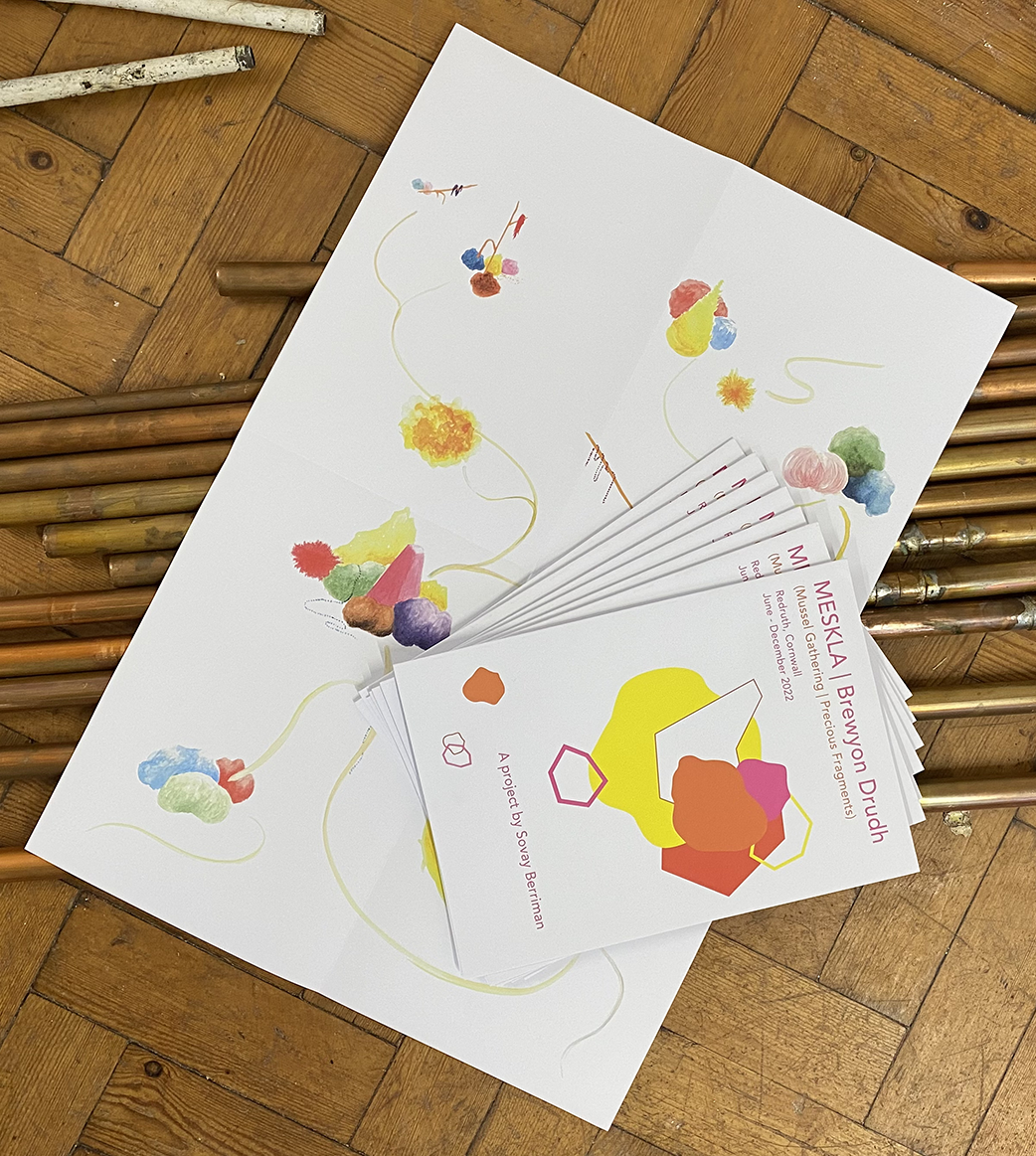
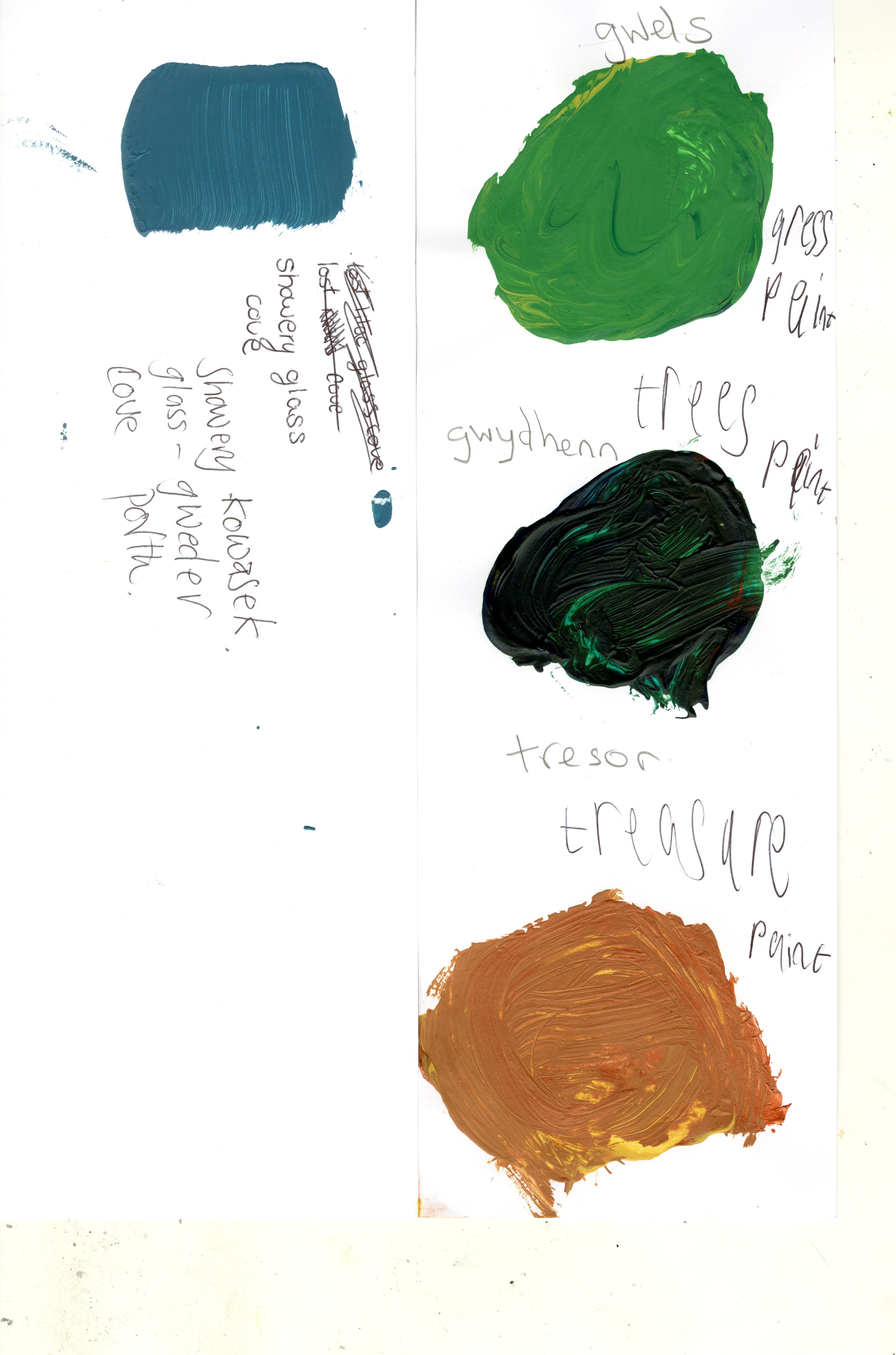
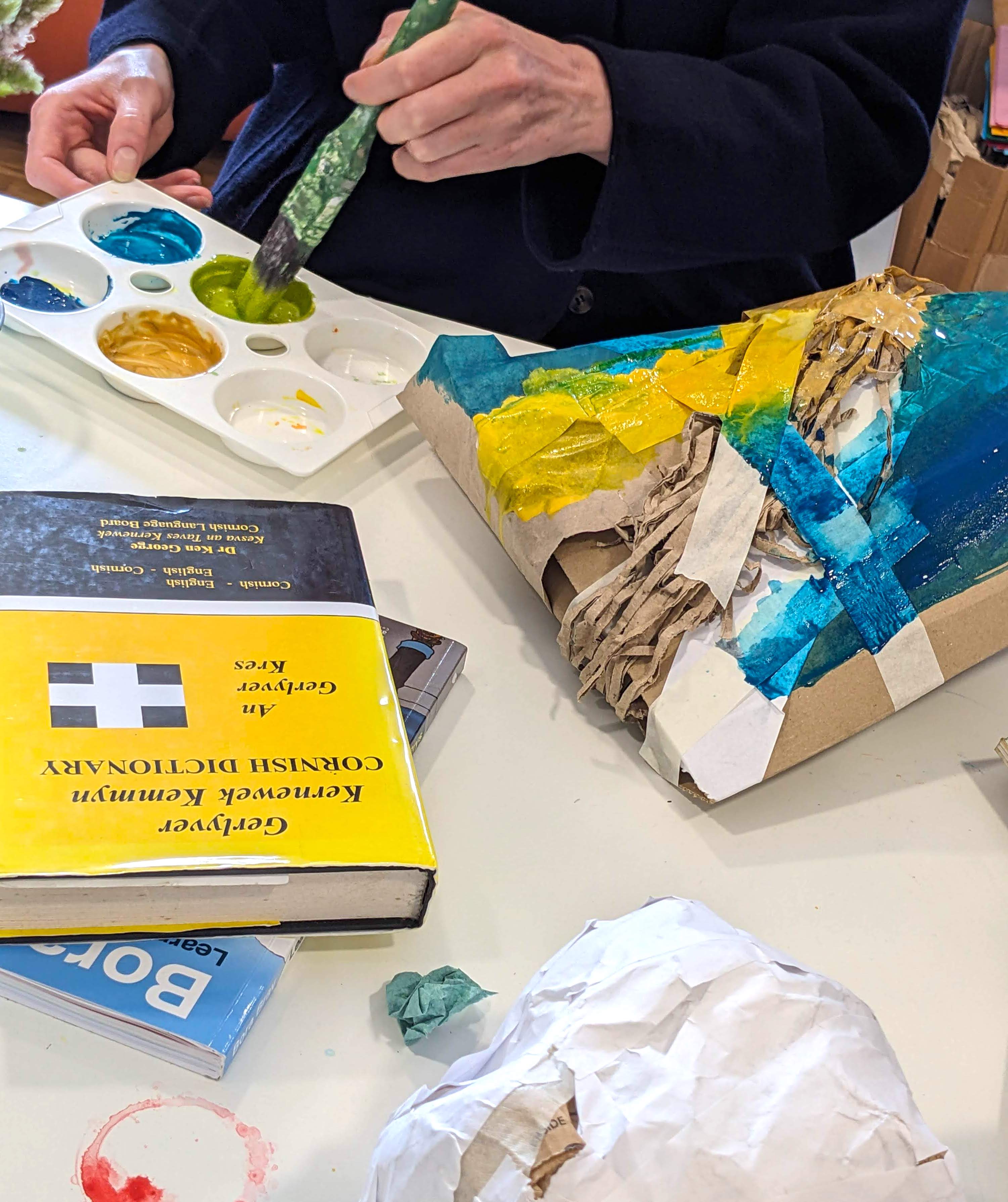
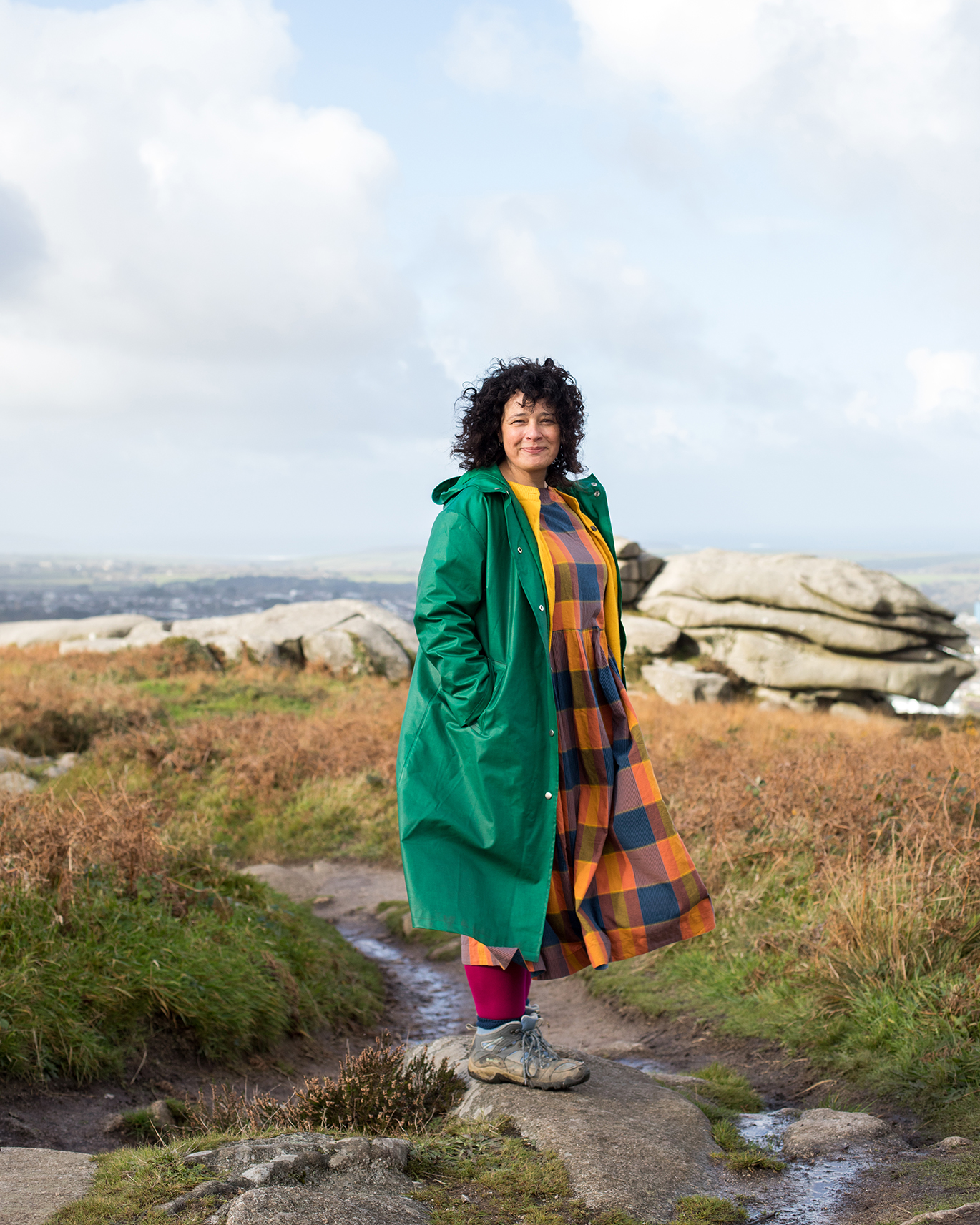 Sovay on Carn Brea
Sovay on Carn Brea Photo credit: John Hersey Studio
WHY MESKLA?
I am Cornish and care passionately about Cornish identity and culture, but I want to find out what others in Cornwall think & feel about this too. I've developed MESKLA | Brewyon Drudh to specifically do this.
Cornwall is a National Minority, a Celtic nation with an indigenous language, and historic networks that reach out to sea, but how does this relate to the contemporary identity of people who live and work here now. MESKLA | Brewyon Drudh has grown out of my experiences as a Cornish person and my previous work that has spoken about contemporary Cornish experience. In the early 1990s I co-founded Pennskol Kernow the campaign for a university in Cornwall, at that time I was also working with a group of fellow young women to set-up Truro Young Women’s Centre, a project aimed at supporting women between the ages of 16 & 23 who were experiencing homelessness. Through this work I was able to take part in the first Racial Equality Council conference at Cornwall County Hall to listen and think more expansively about cultural identity around the UK and globally.
Between 2013 and 2016 I developed my project Molluscs Hunt Wizards which explored relationships between place, landscape and personal experience. More recently, 2019, I co-produced Common Place: Art, Community & Social Change with Tonia Lu of Cultivator Cornwall. This symposium took place at Murdoch House in Redruth and looked at the relationship between art and gentrification. Following on from that symposium I want to create an art project that will involve a broad range of voices from all different parts of Cornish society. I chose to locate it in Redruth because it is a town that I have a long relationship with, from childhood through to adult work life.
The first year of MESKLA was supported using public funding by the National Lottery through Arts Council England. Funding was also gratefully received from Redruth Unlimited, further generous support to help realise the project is given by Liam Jolly of Auction House, Ellie Allen of Splann, Jowdy Davey & Lowender Peran, Falmouth University Falmouth Campus, Kresen Kernow, Kowethas an Yeth Kernewek, Gorsedh Kernow, Cornwall Neighbourhoods for Change, Kath Buckler, Alice Mahoney & CMR, ButCH/*, and Cornwall Council Cornish Language Office.



